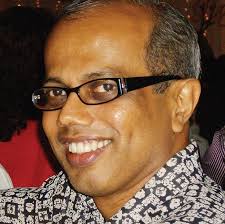The power of the written word
Never underestimate the power of the written word (or spoken word, for that matter).
Jan 29, 2015

By Anil Netto
Never underestimate the power of the written word (or spoken word, for that matter). That was the thought that came to my mind over the last couple of weekends, when I was facilitating at a Young Writers Workshop.
The workshops were organised by Aliran, with the support of the Canada Fund for Local Initiatives. The idea was to encourage young writers to express their thoughts about issues facing the nation through their writing.
My colleagues and I marvelled at the enthusiasm with which these young people rose to the challenge. They seemed to relish the idea of letting their inner voice come through in their writing.
God knows we need new (moderate!) voices to speak out — and who better than the young people in whom the future of the nation rests.
In recent years, we have been subjected to the shrill voices of extremist ethno-religious from a vocal few. Part of the problem is that, though this group is relatively small, they have received disproportionate coverage in the media. The online media give their words extensive coverage because they attract a lot of ‘hits’ (page views) by readers who are outraged by such extreme views.
Once these extreme views are crystalised in print, they breathe a life of their own and encourage others to subscribe to such exclusivist and extremist thinking.
This is why it is important for others to counter such bigoted views, in print form as well — to promote a world view that is more inclusive and accepting of differences.
In a sense, the court battle over the word ‘Allah’ was more than just a tussle over semantics. Rather, I saw it as a manifestation of a clash between two competing worldviews — i.e. inclusivism vs excluvism, which extends to even the word we used to describe the divine being.
One of the marks of good writing is to express a message in simple words so that it reaches out to a wider audience, without their having to take out their dictionaries. Many of us (including me!) can easily lapse into this, if we are not careful.
Perhaps a general rule (which can always be broken, where the need arises) is to avoid unnecessarily long sentences when you can say the same thing in fewer words.
Some of the most powerful messages in history have been conveyed in just a few words.
- I.
Think of Martin Luther King Jr’s “I have a dream” speech in 1963 from the steps of the Lincoln Memorial in Washington. It was the most moving speech heard over the last century on US soil, portraying a new world devoid of racism in America. Those four words “I have a dream” rang out during King’s speech, captivating the imagination of 250,000 civil rights supporters gathered there, and countless others since then who have heard or read those words.
King repeated other simple phrases in different parts of his speech: “Free at last” and “Now is the time”.
Simple words and yet so powerful. In using the phrase “I have a dream” eight times in his speech, King used the technique known as anaphora — the repetition of a phrase at the beginnings of sentences or paragraphs to add emphasis — to devastating effect.
The Beatitudes uses the same technique to powerful effect. Addressing throngs of the downtrodden, the poor and the oppressed, Jesus says, “Blessed are .... Blessed are … Blessed are....” in spelling out how the kingdom he was heralding was going to turn the existing order upside down.
In recent times, when an unknown personality from Argentina was elected Bishop of Rome, he adopted the name Francis. Just a simple name, and yet it spoke volumes about the type of Church he wanted to see, and the tone of leadership he would use.
Among Francis’ first words when he appeared on the balcony were “Pray for me” — these few humble and simple words were enough to cystalise the tone of his stewardship of the Church.
“How I would like a Church that is poor and for the poor,” he would say soon after, again laying out the vision of his Church in a single sentence.
Simple words can evoke emotion from even the strongest and most hardened of people. I have seen grown men, even those estranged from the Church, shed a tear at the sound of the words to The Old Rugged Cross and Silent Night. They seem to be at a loss to explain why their tears roll down their cheeks.
Speaking of simple words and short sentences, the shortest sentence in the Gospel is: “Jesus wept”. Two simple words and yet, they describe profoundly how God sent Jesus into the world to experience human suffering and the anguish and the painful moments we endure. The Word was indeed made flesh.
So as I look back at my experience at the Young Writers Workshop, I came away with a renewed respect, even awe, at the power of the written word, and the the capacity words have for transforming our world.







Total Comments:0